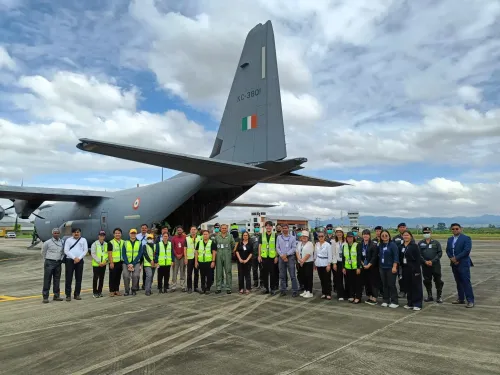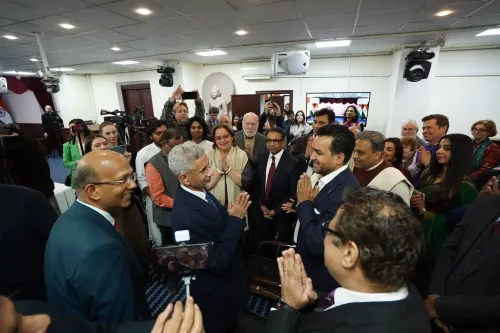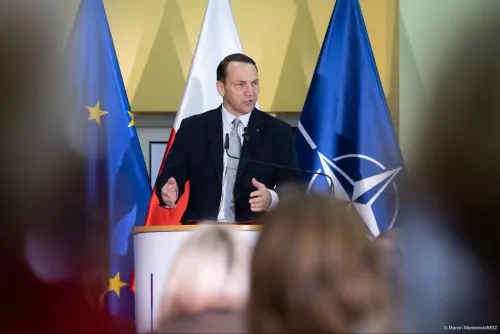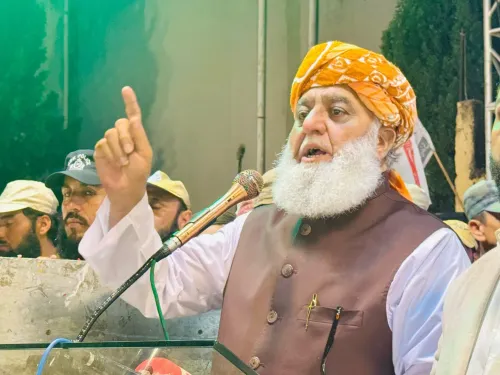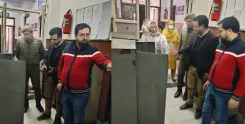Why Are European Rights Groups Opposing ICT's Verdict on Sheikh Hasina?
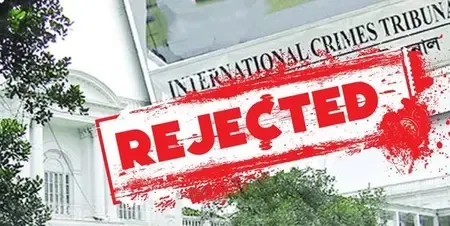
Synopsis
Key Takeaways
- Five European organizations criticize ICT's ruling.
- Sheikh Hasina faces serious allegations of crimes against humanity.
- Concerns over judicial independence and fairness have been raised.
- The verdict has led to calls for global intervention.
- Political implications for Bangladesh's democracy are significant.
Dhaka, Nov 19 (NationPress) Five European international organizations have criticized the verdict of the International Crimes Tribunal (ICT) against Bangladesh's former Prime Minister Sheikh Hasina and have called for worldwide intervention to halt what they label as "politically motivated" trials, as reported by local media on Wednesday.
A coalition of advocacy and rights groups based in London issued a collaborative statement expressing "deep concern" regarding the ICT's recent ruling made under the interim government of Bangladesh. This coalition has reached out to the UN Secretary-General, the UN High Commissioner for Human Rights, Human Rights Watch, the European External Action Service, Amnesty International, the Commonwealth Secretariat, the US State Department’s Bureau of Democracy, Human Rights and Labour, the International Bar Association, and various UN special rapporteurs, as noted by Dhaka Tribune.
In their joint statement, the coalition expressed that the tribunal, established to examine atrocities from the 1971 Liberation War, has "strayed from its core principles." They condemned the recent trials conducted in absentia, asserting that such practices compromise judicial independence and violate international human rights norms.
The coalition raised multiple concerns, including doubts about the judiciary's independence, the constitutional legitimacy of the tribunal, expedited trial processes, lack of sufficient legal representation, absence of defense witnesses, and indications of collusion.
This statement from the rights and advocacy groups follows the ICT's verdict on Monday, which sentenced former Prime Minister Sheikh Hasina to death after finding her guilty of "crimes against humanity" linked to protests in July of the previous year.
The ICT also found two of Hasina's senior aides guilty, sentencing former Home Minister Asaduzzaman Khan Kamal to death and former Inspector General of Police Chowdhury Abdullah Al-Mamun, who became a state witness, to five years in prison.
Sheikh Hasina has denied all charges against her in the ICT, claiming that the verdict from a "rigged tribunal" led by the unelected interim government under Chief Advisor Muhammad Yunus lacks a democratic foundation, labeling the ruling as "biased" and "politically motivated."
In her statement, she remarked, "In their distasteful call for the death penalty, they reveal the brazen and murderous intent of extremist figures within the interim government to remove Bangladesh’s last elected prime minister, and to nullify the Awami League as a political force. Millions of Bangladeshis toiling under the chaotic, violent and socially-regressive administration of Dr Mohammad Yunus will not be fooled by this attempt to short-change them of their democratic rights. They can see that the trials conducted by the so-called International Crimes Tribunal (ICT) were never intended to achieve justice or provide any genuine insight into the events of July and August 2025. Rather, their purpose was to scapegoat the Awami League and to distract the world’s attention from the failings of Dr Yunus and his ministers."
Criticizing the Yunus-led interim government, Sheikh Hasina added, “Under his aegis, public services have fallen apart. Police have retreated from the country’s crime-ridden streets and judicial fairness has been subverted, with attacks on Awami League adherents going unpunished. Hindus and other religious minorities are assaulted, and women’s rights suppressed. Islamic extremists inside the administration, including figures from Hizb-ut-Tahrir, seek to undermine Bangladesh’s long tradition of secular government. Journalists are locked up and menaced, economic growth has stalled, and Yunus has delayed elections and then banned the country’s most longstanding party (the Awami League) from participating in those elections.”

